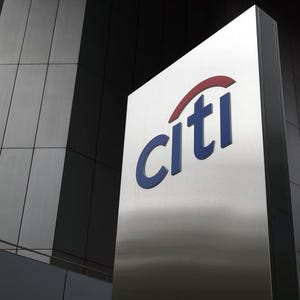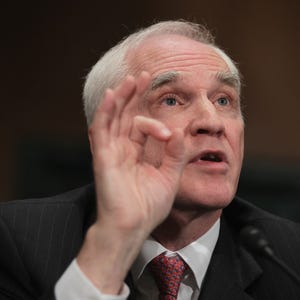from americanbanker
MAR 18, 2015 6:10pm ET
 "I don't think it's a system that's broken," said Fed Chair Janet Yellen, pushing back
against calls by Congress to change the central bank's structure.
"I don't think it's a system that's broken," said Fed Chair Janet Yellen, pushing back
against calls by Congress to change the central bank's structure.
WASHINGTON — Federal Reserve Board Chair Janet Yellen acknowledged Wednesday that there was little the central bank could directly do to change the culture at big banks caught up in market manipulation and other scandals.
Speaking during a press conference after a meeting of the Federal Open Market Committee, Yellen said it was "very disappointing to see what have been some really brazen violations of the law," and she appeared hesitant to offer new concrete actions the central bank could take to tackle the admittedly nebulous idea of culture.
"While changing the culture of organizations is not something that we can achieve through supervision, we will make sure that the banks that we supervise have appropriate compliance regimes in place," she said.
The Fed and other bank regulators issued a proposal in 2011 that would restrict executive compensation at banks, but Yellen declined to offer a timeline on when it might be finalized. Instead, she suggested it may be unnecessary because regulators can use their existing authority to combat incentives that lead to excessive risk-taking.
"Our supervision covers that topic now," Yellen said. "And we have seen, I think, meaningful changes already in the structure of compensation in banking organizations to diminish ways in which it might incent risk taking."
Bank culture remains a topic of substantial concern among global regulators. Investigators have uncovered several scandals in recent years, including bank manipulation of the Libor interest rate benchmark in 2011 and 2012, followed by more recent revelations of the manipulation of foreign exchange benchmarks and the precious metals market. They have heightened concerns that the largest players are colluding to steer markets to their advantage rather that provide valuable services.
The United Kingdom's Financial Conduct Authority last year proposed a roadmap to improve market competition to address concerns around culture, called the Fair and Effective Markets Review. That proposal outlines a code of conduct for market participation and a number of methods of achieving and monitoring compliance.
The executive compensation proposal is the only comparable action unveiled so far in the U.S., and it focuses primarily on limiting firms' ability to reward or incentivize disruptive market behavior. Yellen said that kind of activity is something that the Fed will "look for in our supervision as well."
Yellen also pushed back against the idea that the central bank is too opaque, saying that the Fed is "already one of the most transparent central banks of any around the globe," as evidenced by the availability of bank balance sheets, regular testimony in Congress and the holding of regular press conferences. Yellen went on to reiterate her opposition to any efforts in Congress to change or bind the Fed or the FOMC in its regulatory or monetary policy decisions, including changing the overall structure of the central bank.
"I don't think it's a system that's broken," Yellen said. "Congress can revisit the decisions that [it has] made about the structure of the Fed. There were good reasons for making the decisions that were made about how to structure voting and other things, but … I don't see a need for changes."
The FOMC in its March 17-18 meeting reported somewhat dimmer economic projections for the U.S., estimating that GDP would grow within a more modest range of 2.3-2.7% in 2015, rather than 2.6-3.0% estimate furnished after the December 2014 meeting. The Fed estimates that inflation would remain even further below its 2% target range as well, estimating a range between 1.3% and 1.4% for 2015 and a slower liftoff into 2016 and 2017.
Unemployment, meanwhile, was estimated to fall at a more rapid pace than the committee thought it would be in December, estimating a 5-5.2% unemployment rate this year and between 4.8-5.1% in 2017.
With respect to interest rates, the FOMC chose to keep the Federal Funds Rate at the near-zero level that it has maintained for the past several years. But the meeting seemed to show an emerging consensus about when to raise interest rates and by how much.
Yellen's statement notably dropped the committee's call for "patience" in awaiting a rise in rates. Seven governors favored a 0.5% rate increase in 2015, and six preferred a 1.5% rate in 2016. Thirteen governors favored a long-term interest rate of between 3.5% and 3.75%. The December meeting showed that 15 of the 17 governors favored raising rates in 2015, a number that remained unchanged at the March meeting.
"The Committee judges that an increase in the target range for the federal funds rate remains unlikely at the April FOMC meeting," Yellen said. "The committee currently anticipates that, even after employment and inflation are near mandate-consistent levels, economic conditions may, for some time, warrant keeping the target federal funds rate below levels the committee views as normal in the longer run."





